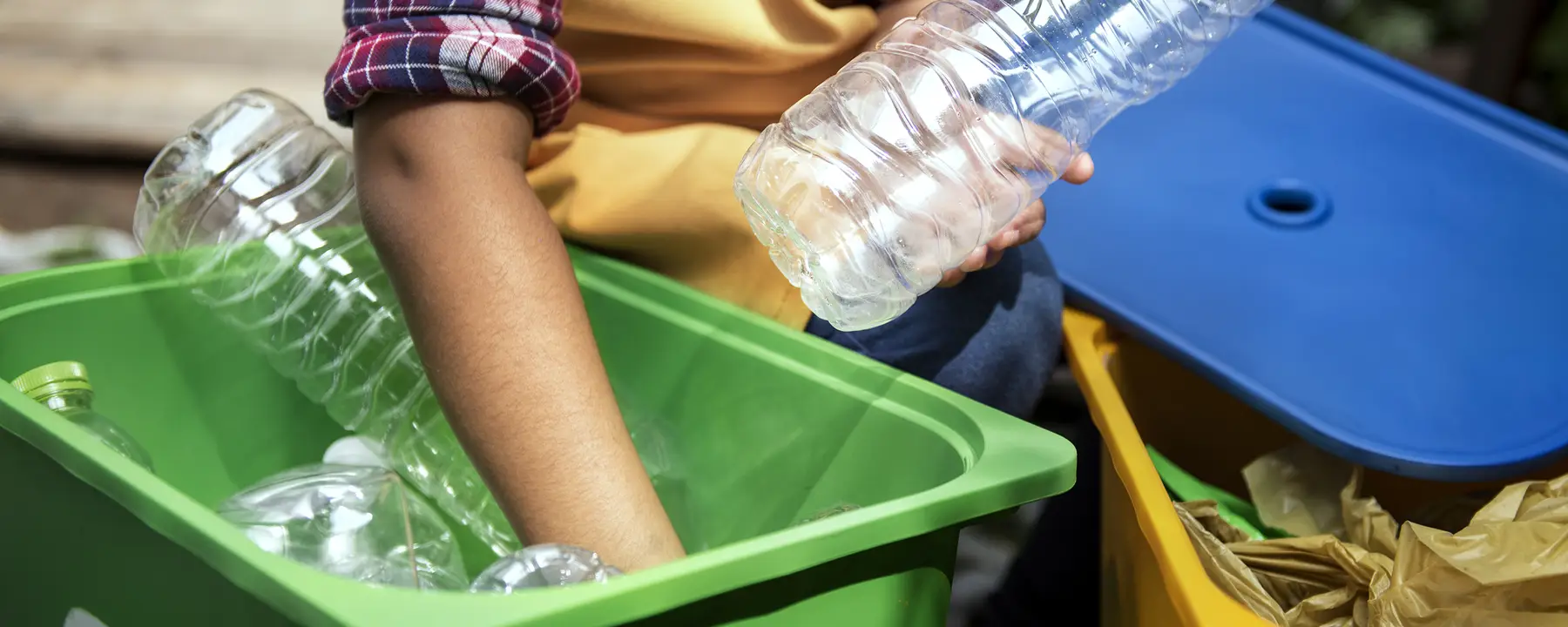Increase the recycling of plastic packaging in the U.S. using a dynamic impact analysis tool
Objective
To increase plastic recycling rates in the U.S.
Approach
We used a dynamic tool to analyze and update recycling data, providing the actions that have the greatest probability of increasing plastic recycling.
Impact
Through our work we are helping plan dozens of companies' activities that will dramatically increase U.S. plastic recycling in a short time.
Most Americans put plastics in the recycling bin assuming that their items will be put to good use. Unfortunately, that is often not the case. Recycling in the U.S. has reached an industry low while plastic consumption has dramatically increased. Recycling infrastructure has not caught up to the increase in consumption and complexity of packaging. To highlight the magnitude of the problem, according to the Ellen Macarthur Foundation, by 2050 there will be more plastic in the ocean than there are fish. In recent years, this problem has caught the attention of the public, plastic industry, and government, who are seeking answers and solutions. In response, RTI Innovation Advisors is working to help solve the challenges associated with plastic recycling.
Stagnant recycling rates and an increase in plastic packaging
For the past few decades, the U.S. has exported around 70% of its waste to other countries to be recycled. Most U.S. recycling systems are single-stream, meaning one container collects all recyclables, including paper, cardboard, plastic, aluminum, and more. This system, particularly utilized on the West and East Coasts, was designed with the intention of exporting the recyclables to China where the plastics would be manufactured into new plastic products that would reenter the U.S. economy. However, China was not recycling most of the plastic, and in 2018, they passed the National Sword policy, banning all plastic imports. Because China is America’s largest importer of plastics, the U.S. was not prepared for this policy and was suddenly overwhelmed by an overload of plastic waste.
The National Sword policy also led to the cancelation of many U.S. recycling curbside service pickups as the domestic recycling market was overwhelmed. In addition, the COVID-19 pandemic exacerbated the problem as companies and consumers increased their plastic disposable consumption to avoid potential infection from the virus. Studies revealed that plastic waste entering the ocean increased by 30% during the pandemic.
With an increase of plastic goods and nowhere to dispose of them, the public demanded answers. A 2019 study conducted by the Shelton Group revealed that 65% of consumers are very or extremely concerned about plastic contaminating the ocean compared to 58% who had similar feelings toward climate change. The Ellen Macarthur Foundation led the New Plastic Economy Global Commitment in 2018, by which companies committed to incrementally reduce and address the plastic packaging they produce. In 2021, around 20% of companies that represent plastic packaging globally signed to take measures to reduce their plastic pollution.
As domestic initiatives received more attention, companies began asking what potential intervention can best increase plastic recycling. Our client, an industry consortium, sought our help to select potential interventions that are most likely to dramatically increase U.S. plastic recycling by 2025. We built multiple models and roadmaps that showcase various scenarios and their results for our clients. Our team takes into consideration the impact, cost, and ease of implementation when formulating real-world solutions.
RTI’s impact assessment tool (IAT) provides data for recycling in the U.S.
The RTI team developed a dynamic impact assessment tool (IAT) to find the best course of action for domestic recycling initiatives. The IAT uses 27 “levers of change” to run countless scenarios. Each lever of change represents a policy, infrastructure, or industry intervention. These levers take into consideration the most practical solutions to increase plastic recycling in the U.S. The IAT also addresses plastic recycling on multiple levels, including single-family, multi-family, industrial, and commercial recycling.
After implementing the IAT, our experts concluded that the data used was deficient. It was difficult to measure the impact of the various levers of change because the current data often lacked details specific to the effect of each intervention. The data had no insights into China’s National Sword policy effects, or into the increase of single-use plastics from the COVID-19 pandemic. Our team was also met with the absence of uniformly defined standards, terms, and methods for reporting recycling rates. For example, some communities reported their capture rate while others reported their recovery rate of recyclables, making the data noncomparable. Because of these problems our team had to look for data solutions. Our team will continue to improve future iterations of the model, and overtime continue to positively impact plastic recycling rates nationwide.



